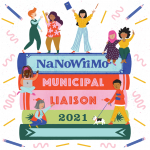The title, of course, is a nod to the “fireside chats” we had with Victor (I’ll have to tell the story of how Freedom threw him for a loop by all pointing “north” correctly). The point was synergy: that when we work together, the outcome is greater than the sum of the parts.
It took me by surprise, but after leaving the BSA, I actually heard about a few other staff members who are LGBT. Certainly there were some in the past that I worked with (having worked during two distinct time periods, generations, if you will, of camp staff, as well as for four different reservation directors), but they were all long gone.
Literally, friends I was working with every day, were also hiding, forced to, or risk losing their job. And that’s the most insidious aspect of the discriminatory policy: the profound isolation that LGBT scouts (and adults and staff members) feel.
Unable to talk to anyone about it, you continue on thinking you’re the only one who is different. When that’s not the case. I just hope that LGBT youth realize they’re not alone, not nearly as isolated as they think.
The original discriminatory ban was put in place not due to some archaic reading of the words “morally straight,” or at least, that’s not the real underlying reason. The BSA, like any non-profit, has real, legitimate business concerns.
That’s the nature of the non-profit world, and it makes sense: you have to have money to run an organization. Grants and other streams of funding are oftentimes attached to how effective you can prove your organization and previous work has been. Again, that’s just how the non-profit world works, across the board.
And to keep charter partners (and consequently the number of youth in the program, as opposed to having to find new charter partners would not guarantee all the youth moved), the BSA caved to pressure, mostly from the Mormon Church. Certainly other large groups, religious and civic, were in support of the ban, and to keep those large percentages of charter partners, the policy was enacted.
But times change, slowly of course, and now the BSA is faced with the stark reality that it’s not profitable, in terms of money or public opinion, to demonize the LGBT community. The majority of Americans support marriage equality and even as we continue to fight for our civil rights (which is a sad, sad fact that any minority has to fight for their own rights), the country has seen that there is no justifiable reason to deny this program to any young person.
So the new compromise, which again, is a huge step in the right direction and should be celebrated as such, puts the onus of discrimination on the charter partner. Hopefully those units that are told to discriminate (by their charter partners) will be few and lose membership, although it will create some interesting interaction at events such as district camporees and the like.
My only fear is that in those areas of the country, where support for the LGBT community is the lowest, young children won’t have a place they feel welcomed, a place where they can find friends and experience the great outdoors while learning about leadership.
I think if the proposed change goes into effect, it won’t be long before everyone realizes the sky hasn’t fallen and lakes haven’t begun to boil, I just hope it’s in time to help the kids that really need it.
Oftentimes the BSA is called a “family values” organization. A few thoughts:
First, it’s an outdated and insulting term. If you want to imagine the 1950’s Leave it to Beaver as your perfect “family,” be my guest, but that romanticized view of America hasn’t existed since, well 1950. There are families with two parents, one parent, grandparents, adoptive parents, the list goes on and on (and thinking to my own extended family, we’re pretty well represented, and I bet if you thought of yours, you would see many family structures there as well). Who is the BSA, or anyone really, to say that’s not a family. True, some structures may be more beneficial, studies have shown that two parent households (of the same or different genders) are more beneficial to children. But if there’s love, everyone will make it through, no matter the circumstances.
Secondly, the LGBT community has a phrase, “family of choice.” It’s one that I’ve seen more and more in mainstream culture and media as well. The idea is that while we all have a family, related to us by blood, the ones we choose to surround ourselves with, the ones we love, are our family of choice. The two can certainly overlap, but oftentimes, for young LGBT kids, thrown out of their homes, they have to create a new family. One that cares for them and supports them, and actually loves them unconditionally. That’s real family values.
And finally, having worked full-time for the BSA for five years, as well as 11 years on camp staff, the image that normally comes to mind when thinking “family values,” really does not fit the BSA. At camp, you’re outside, dirty, working long, strenuous hours and the need to de-stress, including the fact that the staff is mostly men, is of course going to lead to situations never seen on “Leave it to Beaver.” And the office was just like any other, with politics, fights and underhanded tactics (as well as amazing work, fantastic people and great shared goals); non-profits aren’t really so different from the business world, I promise.
Moving forward, I certainly hope the BSA realizes that the country, and the dollars, are on the side of embracing equality. More and more businesses understand that, and I hope it is a lesson soon learned.
All my best,
Mike






